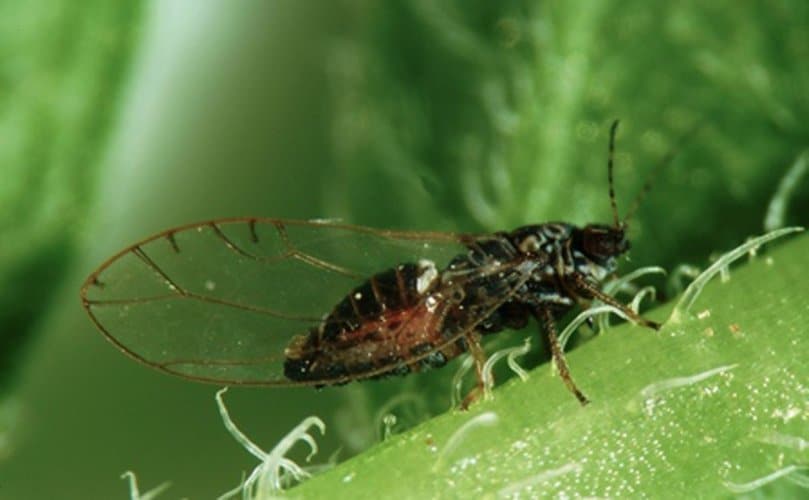In Idaho, pressure from the tiny, winged insects that spread zebra chip disease in potatoes has been light this season, emboldening some Idaho farmers to scale back on their pesticide programs.
Zebra chip, which is caused by the Liberibacter bacterium and spread by potato psyllids, first arrived in the Pacific Northwest in 2011. The disease creates bands in tuber flesh that darken during frying, rendering spuds unmarketable.
University of Idaho (UI) extension entomologist Erik Wenninger, who runs an extensive field monitoring program to gauge psyllid populations, said the first psyllid of this season was captured in late May — about the same timing as last season. However, a single psyllid, captured at UI’s Kimberly Research and Extension Center, has tested positive for Liberibacter this season.
Furthermore, Wenninger said, the scouting network, which includes yellow sticky traps surrounding 96 potato fields throughout the state, has captured five to seven psyllids per week, compared with more than 50 psyllids per week last season.
Wenninger said zebra chip was found in a few fields last season, but the incidence of the disease was relatively low, especially given the high psyllid densities.
“We had a lot more psyllids at this time last year,” said Wenninger, who has also noticed lighter pressure from aphids and Colorado potato beetles.
Jeff Miller, with Rupert-based Miller Research, recently captured a psyllid on a sticky trap near a research field, but it didn’t test positive for zebra chip. He’s prolonged spraying insecticides on fields in which he used an insecticidal seed treatment at planting.
“I think you would be wise to wait (on applying insecticides), and part of that is driven by the economy,” Miller said. “I don’t think it’s time to worry about zebra chip just yet. Keep watching the results (of the monitoring program) and see what we find.”
Source: Capital Press











